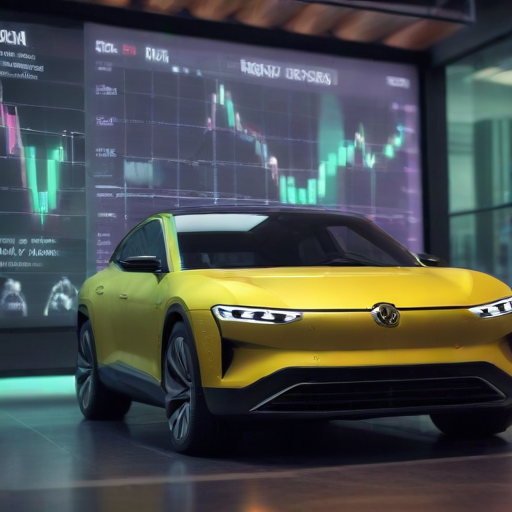Rivian’s stock surged by as much as 16% in early afternoon trading on Wednesday, following the electric vehicle manufacturer’s announcement of an expanded partnership with Volkswagen. The German automaker is increasing its investment in this joint venture, which was initially revealed in June. This new collaboration will leverage Rivian’s advanced electrical architecture, called “zonal architecture,” and its software to facilitate the launch of Rivian’s forthcoming midsize R2 SUV, slated for release in the first half of 2026.
In a significant development, Rivian’s technology will also power new electric vehicles from Volkswagen, which are expected to debut as early as 2027. The joint venture’s operations will kick off today in North America, with plans to later extend to Europe, also catering to EVs in the subcompact category. Volkswagen’s total investment in the joint venture will increase from $5 billion to $5.8 billion, with a previous investment of $1 billion structured as a convertible note. An additional $1.3 billion will be allocated for intellectual property licenses, alongside a 50% equity stake in the joint venture.
The remaining $3.5 billion will be raised through a mix of equity, convertible notes, and debt in the future, assuming specific milestones are achieved. However, the deal does not include any collaborative efforts on battery technology, platforms, or electric drive units, as confirmed by a Rivian spokesman.
Wedbush analyst Dan Ives expressed optimism about the partnership, stating that it provides critical capital for the ramp-up of the R2 and Georgia plant projects, which he views as essential for Rivian’s future. Ives maintained an ‘Outperform’ rating and set a price target of $20 per share following the announcement.
Despite Rivian’s recent quarterly results indicating a higher-than-expected yearly loss linked to supply chain challenges, the company anticipates a modest gross profit in the fourth quarter. The need for Rivian’s software capabilities is underscored by the development delays faced by Volkswagen’s CARIAD software unit, impacting key vehicle launches within the VW group.
This partnership marks a significant milestone for Rivian, providing necessary financial resources and reinforcing its technological expertise in a competitive EV landscape, setting the company on a promising path towards enhancing its product offerings and achieving production goals.
Overall, this joint venture could herald a new era for both Rivian and Volkswagen, potentially accelerating the adoption of electric vehicles and solidifying their positions in a rapidly evolving industry.
